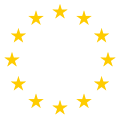2015 Western Balkans Summit, Vienna
| Western Balkans Summit Westbalkan-Konferenz | |
|---|---|
 | |
| Host country | Austria |
| Dates | 27 August 2015[1] |
| Venue(s) | Hofburg Palace[1] |
| Cities |
|
| Participants | |
| Chair |
Sebastian Kurz (Federal Ministry for Europe, Integration and Foreign Affairs) |
| Follows | 2014 Conference of Western Balkan States, Berlin |
| Precedes | 2016 Western Balkans Summit, Paris |
| Website | Western Balkans Summit |
| Key points | |
|
Future enlargement of the European Union | |

The 2015 Western Balkans Summit was the second annual summit of heads of states and governments of Western Balkans. It took place in the Vienna, Austria, following the 2014 Conference of Western Balkan States that took place in Berlin, Germany. This summit forms part of the Berlin Process, a five-year process marked by yearly summits in order to underline the commitment to Future enlargement of the European Union towards the Western Balkans region.[1] Official date of summit is 27 of August 2015.[1] After 2014 conference Günther Oettinger confirmed that the event will be organised annually with Vienna as a host city in 2015 and Paris in 2016.[3]
The focus of the Berlin Process is on countries of the region that are not yet members of European Union (Albania, Bosnia and Herzegovina, Kosovo[lower-alpha 1], Republic of Macedonia, Montenegro and Serbia) with participation of countries who have committed themselves to organise summit meetings (Germany, Austria, France and Italy) and with strong support by Slovenia and Croatia.[1]
Regional activities before The Summit
Civil society initiative The Balkans in Europe Policy Advisory Group (BiEPAG) organized three preparatory meetings in Tirana, Belgrade and Sarajevo.[4] The first preparatory meeting held in Tirana focused on job creation and prosperity.[4] Second meeting in Belgrade took place on 25 May 2015 with aim to discuss recommendations for policy analysis ahead of the Vienna Western Balkans Summit and with topics of culture of regional cooperation, creation of jobs and prosperity, freedom of expression and bilateral disputes on agenda.[4] Third preparatory meeting took place in Sarajevo in June 2015 with focus on freedom of expression.[4] On the day of the Summit, civil society representatives will have the possibility to present their concrete proposals to the present politicians.[5]
Notes and references
Notes:
- 1 2 Kosovo is the subject of a territorial dispute between the Republic of Kosovo and the Republic of Serbia. The Republic of Kosovo unilaterally declared independence on 17 February 2008, but Serbia continues to claim it as part of its own sovereign territory. The two governments began to normalise relations in 2013, as part of the Brussels Agreement. Kosovo has received recognition as an independent state from 110 out of 193 United Nations member states.
References:
- 1 2 3 4 5 Federal Ministry for Europe, Integration and Foreign Affairs. "Western Balkans Summit". Retrieved 11 August 2015.
- ↑ Federal Ministry for Europe, Integration and Foreign Affairs. "Kurz: "Turn over a new leaf on the Western Balkans"". Retrieved 11 August 2015.
- ↑ Deutsche Welle. "Nova dinamika evrointegracija" (in Serbian). Retrieved 28 August 2014.
- 1 2 3 4 European Fund for the Balkans. "Preparation meetings in Belgrade for the Vienna Western Balkans Summit". Retrieved 11 August 2015.
- ↑ Balkan Civil Society Development Network. "Participation of Civil Society Concerns at Vienna Western Balkans Summit Initiated". Retrieved 11 August 2015.
See also
- Berlin Process
- Southeast Europe
- Stabilisation and Association Process
- Central European Free Trade Agreement
- Stability Pact for South Eastern Europe
